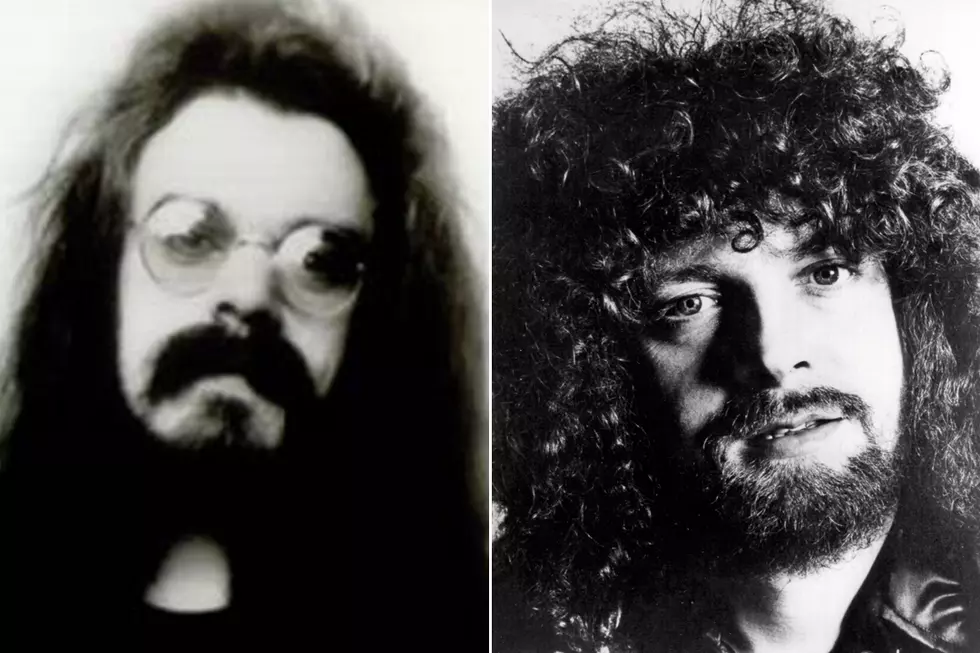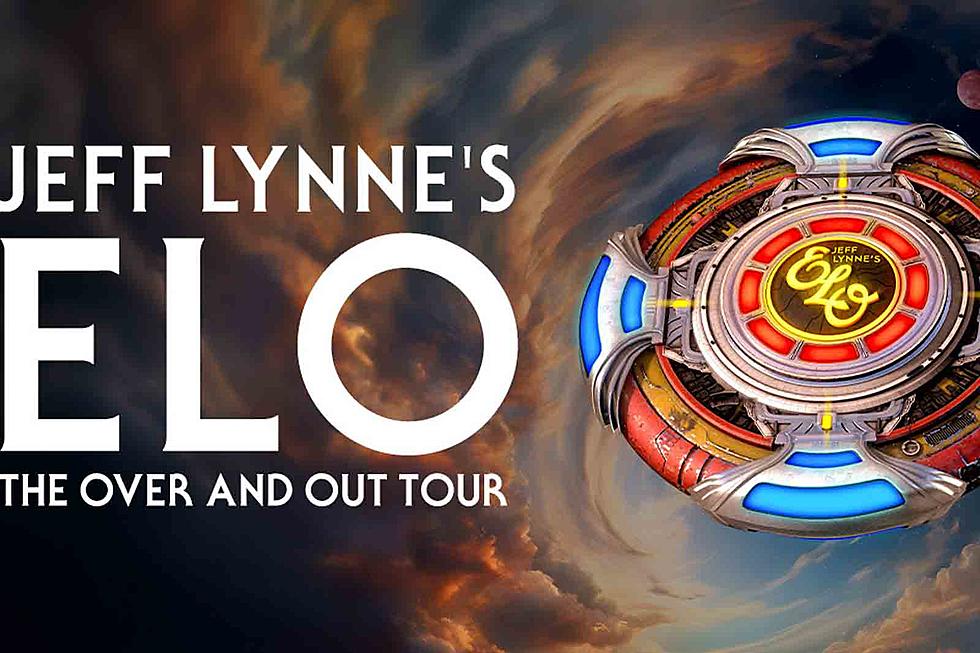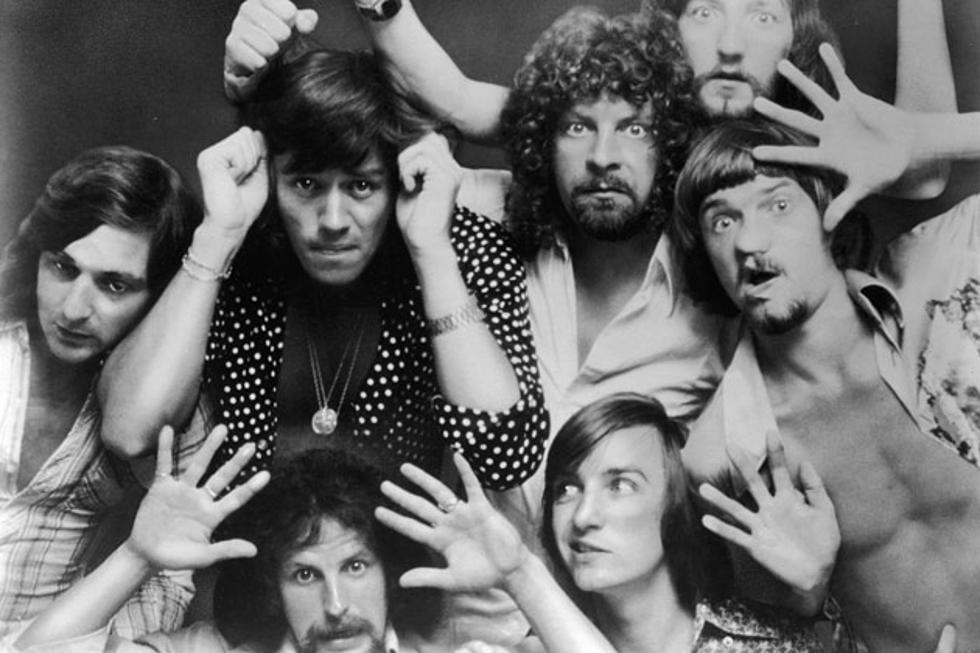
Why Roy Wood Really Left the Electric Light Orchestra
When Roy Wood walked out on the Electric Light Orchestra in June 1972, leaving the band in the hands of Jeff Lynne, it was inevitably chalked up to “musical differences.”
You couldn’t have two equally creative and talented and focused people in one little band, could you? So, the headlines spoke of artistic tension and personal grievances, and Lynne’s ELO became a huge success while Wood’s Wizzard had their own taste of success along the way.
While perception is often regarded as reality, it’s not always the truth. Despite Lynne’s own comments (“We couldn’t work together; it was like having two bosses,” he reportedly complained), Wood always maintained there was a different story to be heard behind the scenes. The problem was, Wood was a quiet sort of chap, something of a recluse offstage, so he wasn’t often in the position to offer his version of events.
But the way he tells it, manager Don Arden was to blame for Wood's decision to depart soon after the launch of ELO's self-titled debut album. The group was built in 1970 on the foundations of Wood’s psychedelic pop band the Move, and Lynne was invited to join purely because Wood wanted him there. It was a meeting of musical minds, an ambitious attempt to explore the widest possible sonic background to the world of pop music, along with larger-than-life stage personas – and that’s exactly what they’d achieved by the time ELO's debut track “10538 Overture” was heard.
Their mission, said Wood, was “to produce a widely based jazz and classically influenced free-form music.” One reviewer described the first LP as “sonic terrorism.” By the time “10538 Overture” was enjoying chart success, at the end of June 1972, Wood had already left.
Arden wasn’t the type of character you crossed easily. Infamous for having allegedly hung a rival out of a fourth-story window, and for any number of violent and aggressive outbursts at those he didn’t like (even if temporarily), the father of Sharon Osbourne had his own vision of how his bands should operate. He also managed the Move – and even though the band eventually escaped his clutches, they wound up back with him again.
The aim was for Wood and his band to be massive, but by all accounts, Arden wasn’t interested in what Wood had to say about it. For his part, Wood later countered that he “unfortunately had political disagreements mainly with the management," and that he left "with true regret."
Arden “was the man that ruined my career,” Wood told the Birmingham Mail in 2009. “His business dealings all came out in the end. At the time it was reported that I’d had a huge row with Jeff Lynne. That simply wasn’t true. We’ve never had a real row, and we’re still mates now.”
Wood took a potshot at Arden two years earlier, soon after the impresario’s death. “The bloke ruined my career,” he told the Telegraph. “He enjoyed the image of being some sort of mafioso, but all he was was a crooked manager who couldn’t keep his fingers out of the till. I had as much chance of becoming lord mayor of London as getting my money back from Don Arden. But there was a lot of that around in those days.”
Asked whether he had any warmth for the businessman in the light of his death, Wood added: “Unfortunately, I seem to have mislaid the number for Interflora,” the flower-delivery company.
Some have suggested that Arden wanted Wood and Lynne to fall out, because he could make more money if they both ran their own bands. If that’s true, he was right: While the Electric Light Orchestra are regarded as having soared higher than Wizzard, it was the latter group, in the first years of its operation, that made a real impact. And even though Wood might prefer to be remembered for his Move track “Blackberry Way” or Wizzard’s “Angel Fingers,” he laughed warmly in 2012 at being described as having “owned Christmas” for a number of years with the eternal anthem “I Wish It Could Be Christmas Every Day.”
Lynne and Wood have met on a number of occasions since the split, but it seems that any kind of musical collaboration is the stuff of dreams. They also shared the stage together in 2017 when ELO were inducted into the Rock & Roll Hall of Fame. Those who haven’t had much experience with the dry and lightly spoken humor that emanates from Birmingham might suspect Wood of speaking with hollow words when he said: “I thank Jeff for his dedication to writing the songs, otherwise we wouldn’t have been invited here tonight.”
But those sentiments echo comments he made about the Electric Light Orchestra in 1974: “Even though I'm not part of it anymore, I am glad it came to light. It would have been frustrating if it hadn’t. It’s a good band, and Jeff is still a good friend of mine."
In 2012, Wood added: "The upside is that we did get two very different, but equally off-the-wall and awe-inspiring bands out of the split. We also got some incredible music, the likes of which we might never hear again," he told the Base Sessions. “It feels now that it’s all been done and we’re treading over old ground, just trying to make it slightly different. We were pioneering the way in the old days, and I think that’s why we were successful. We were different.”
See ELO Among the Top 200 '70s Rock Songs
More From Ultimate Classic Rock









